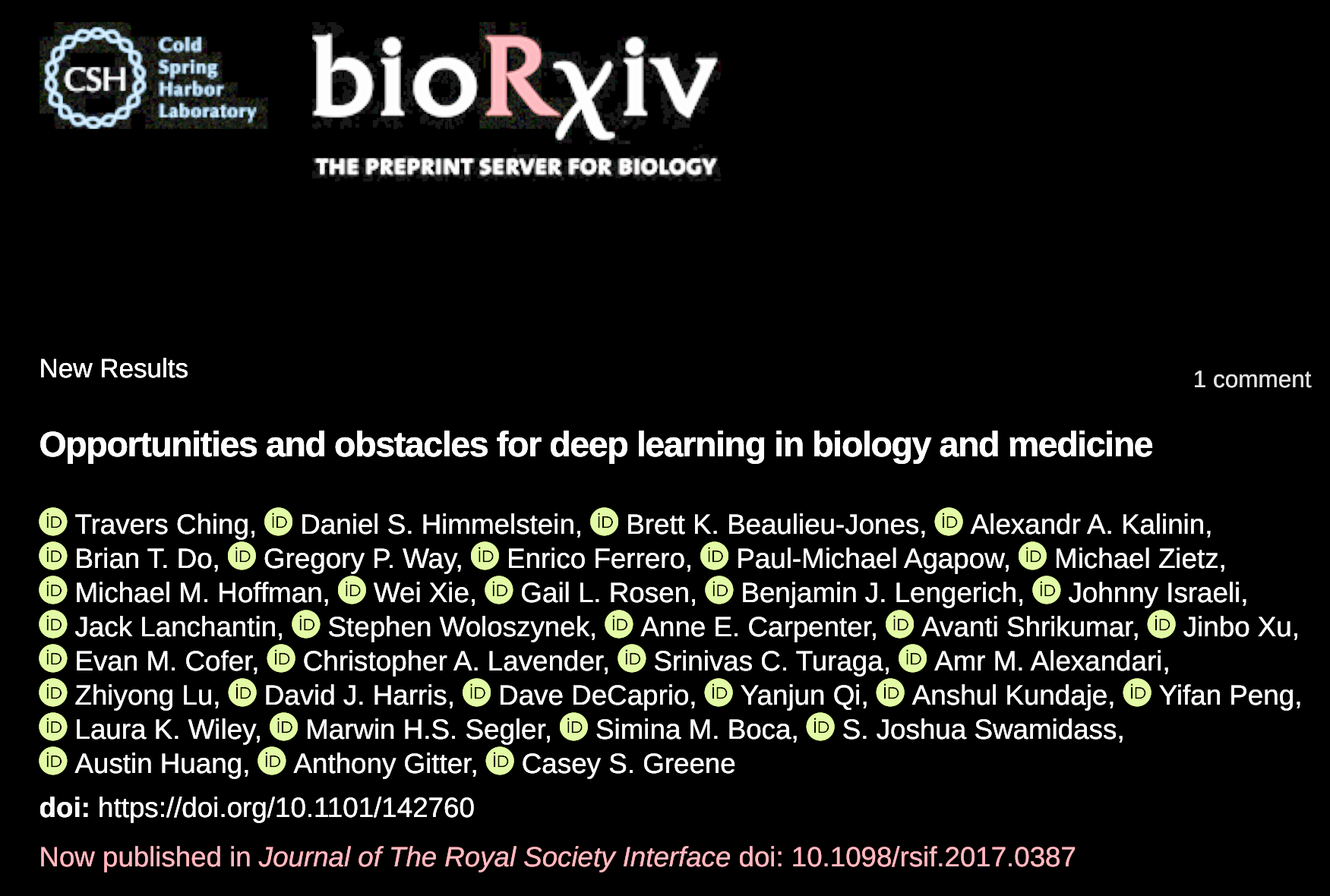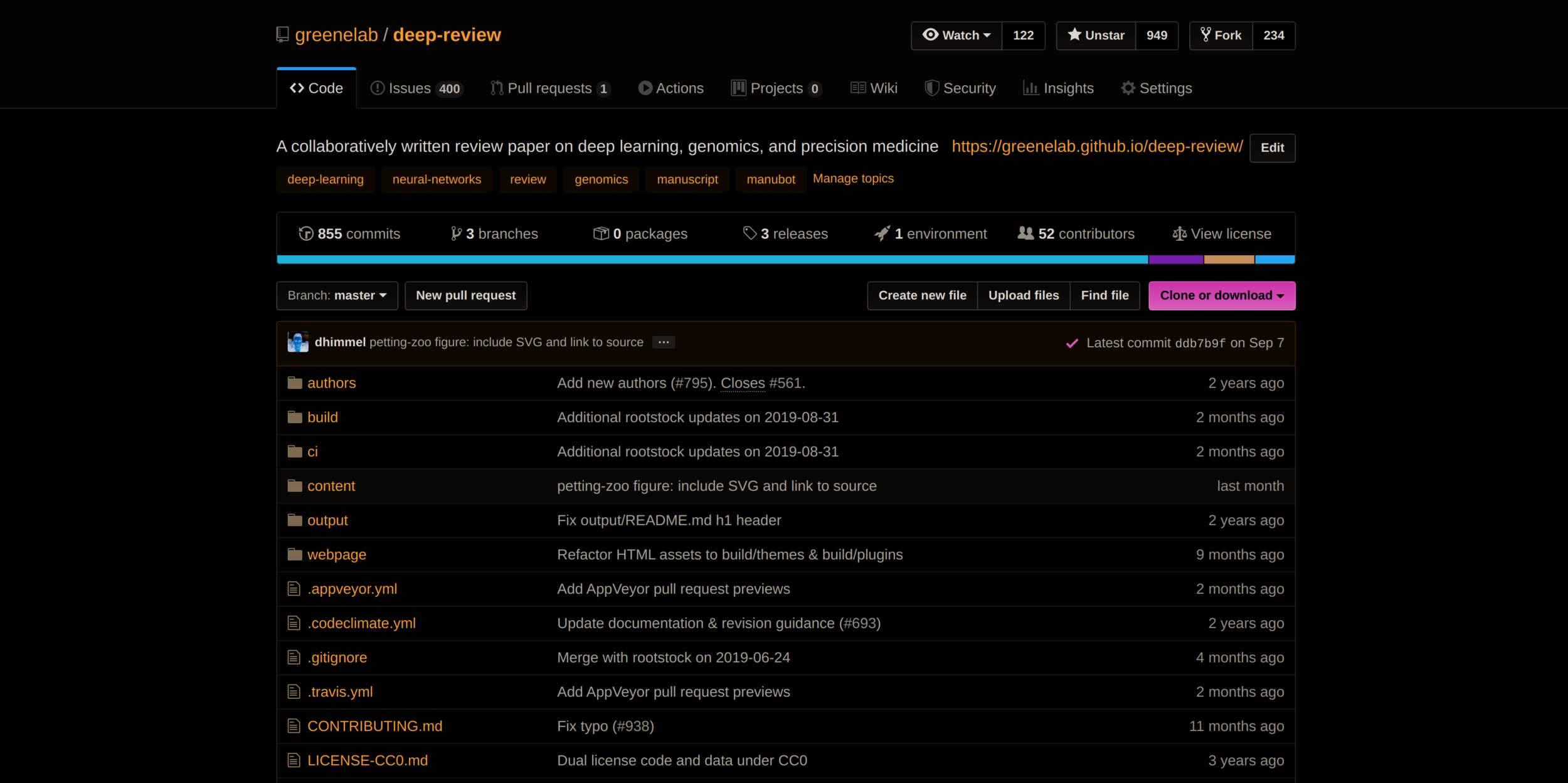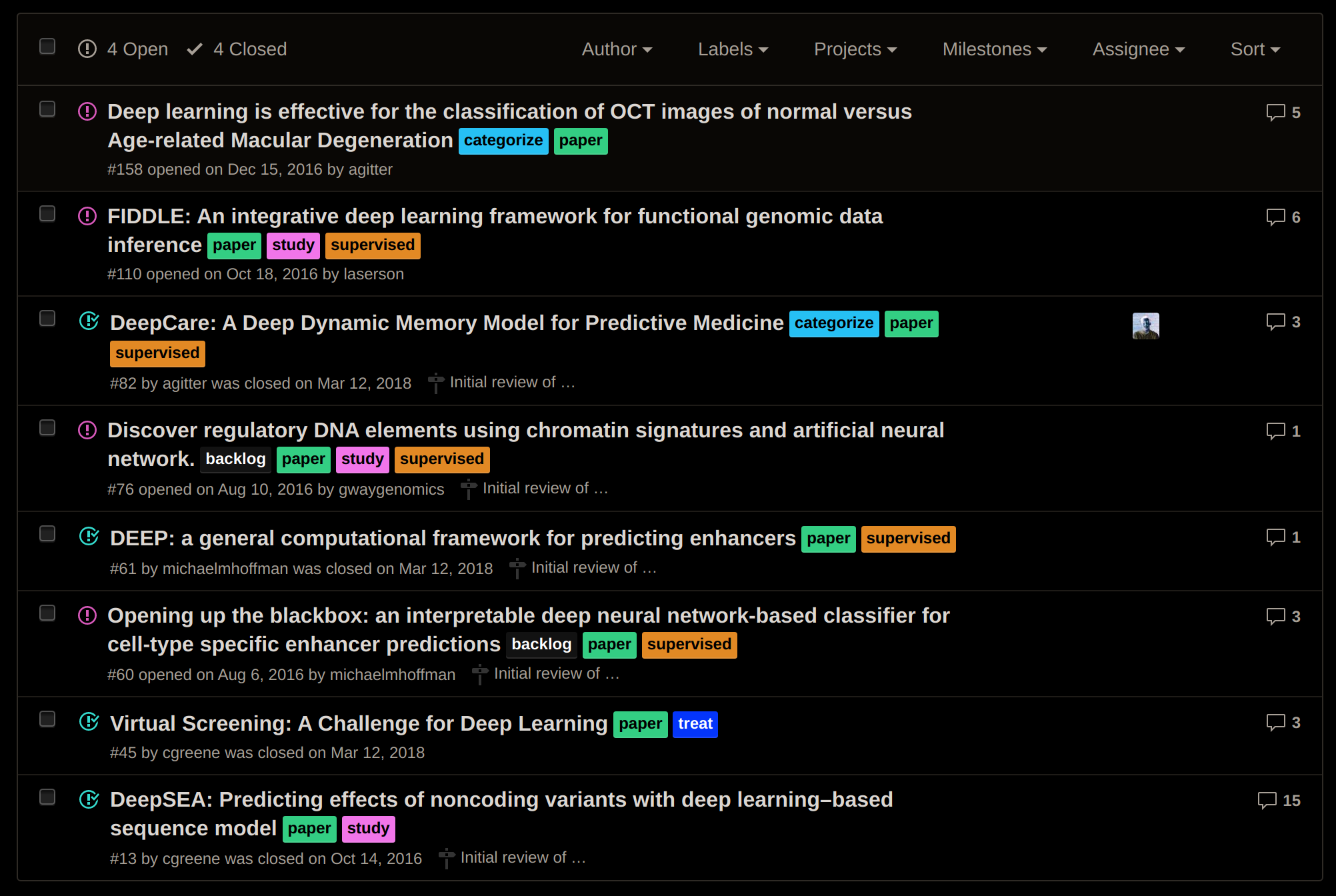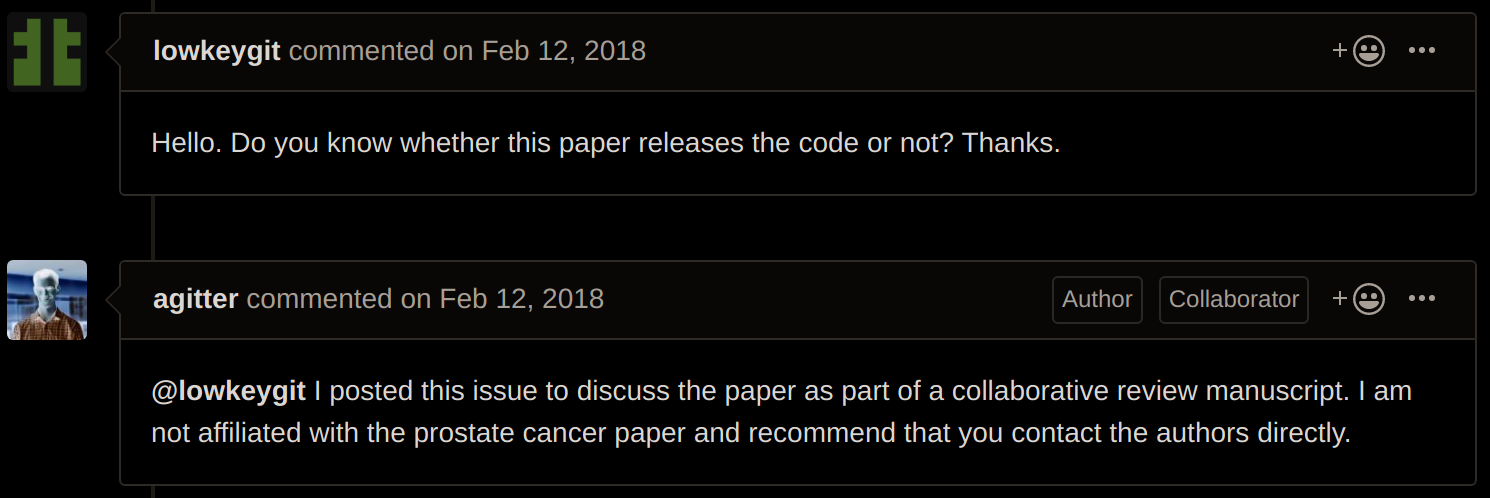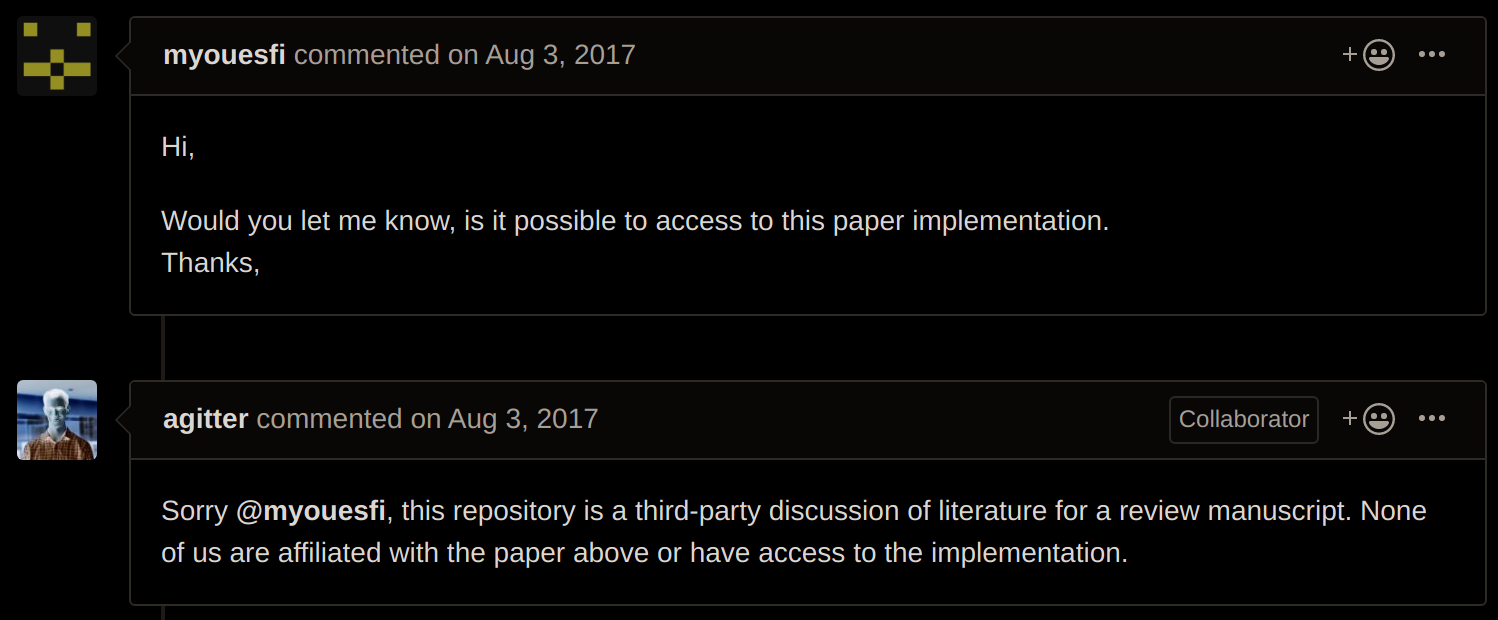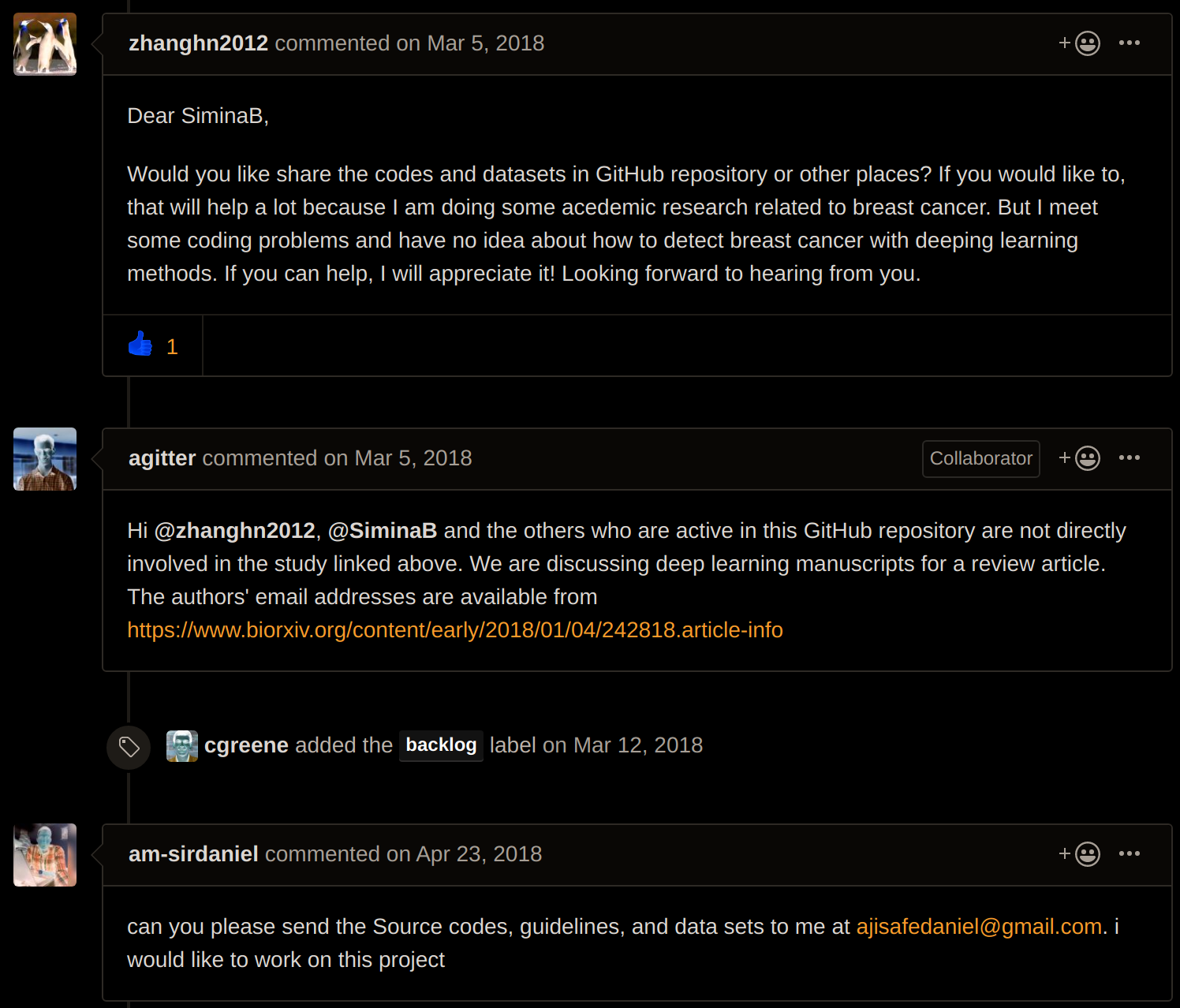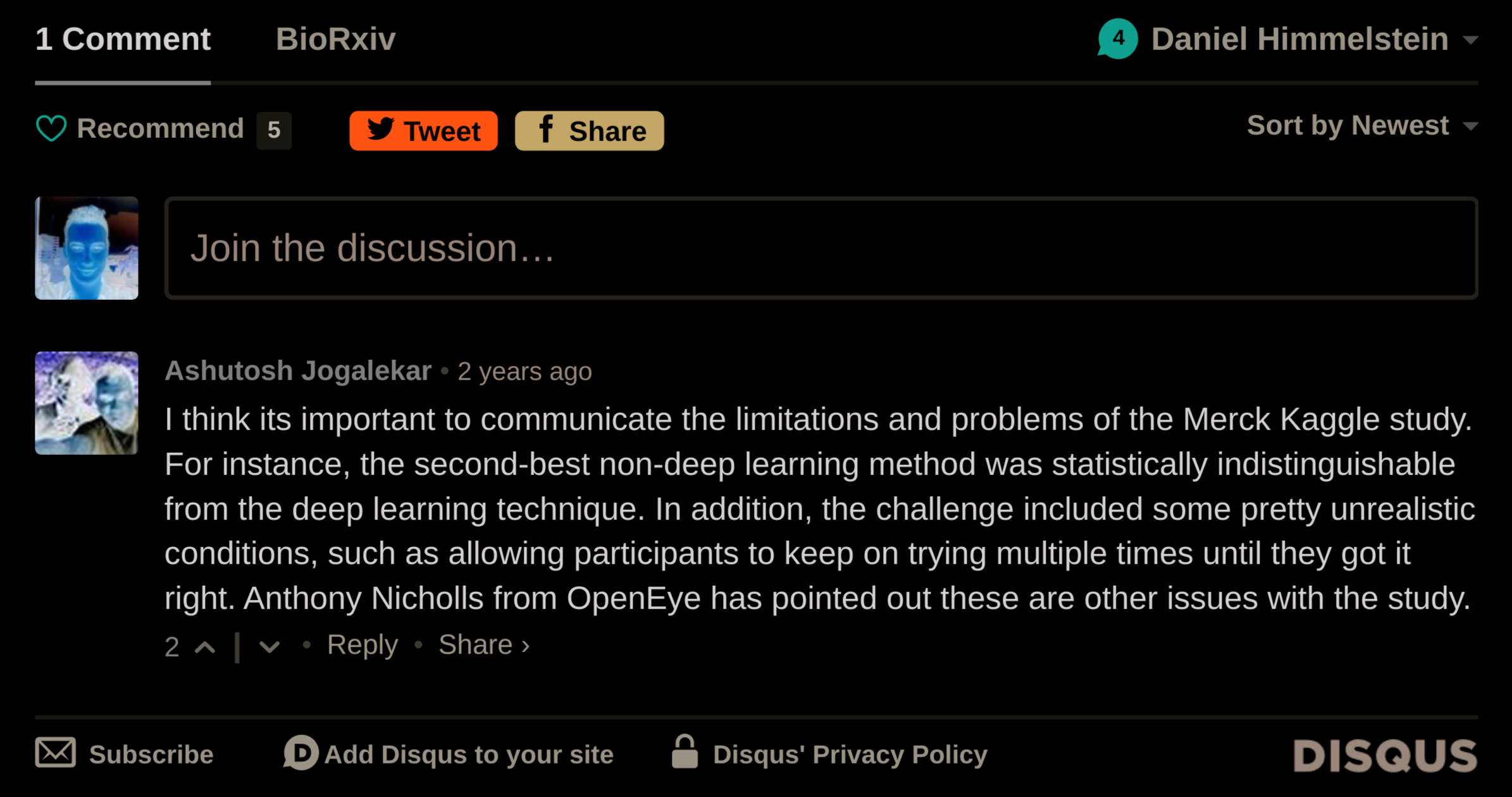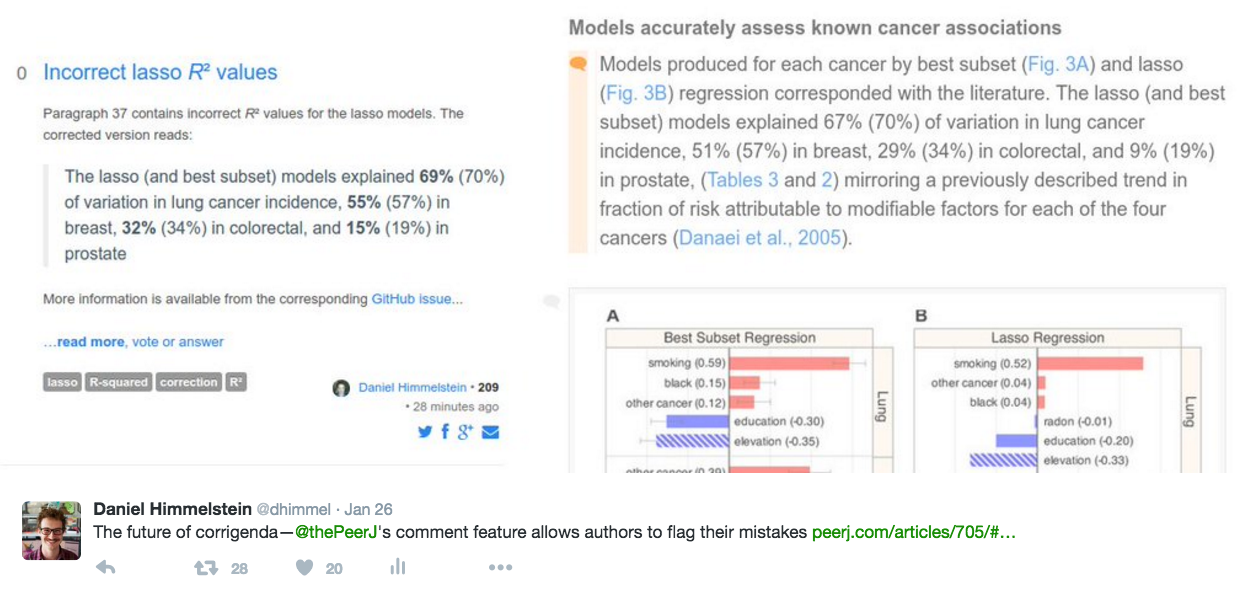Frankfurter Buchmesse:
Science as a Conversation
Daniel Himmelstein (@dhimmel)
HighWire’s Preprint Panel
Festhalle Messe Frankfurt, Hall 4.2
October 16th, 2019 17:00
slides.com/dhimmel/frankfurt
slides released under CC BY 4.0
event information (website)
Abstract
Science is a continuous process: an ongoing conversation between researchers as they test, retest, rebut and refute each other’s work. However, this fluidity is not supported by the traditional scholarly publishing workflow, a long-tail process where researchers can wait months or sometimes years for the publication of a journal. When that publication does come, journals are often less an iterative part of the conversation, and more of a full-stop: an monolithic and largely immutable piece of content.
Perhaps this explains the exponential growth in the use of preprint server, with more manuscripts posted to the 5 year old bioRxiv server in 2018 than in the 4 years previous. With the popularity of preprints bolstered last year by policy mandating preprints for all research supported by the Chan Zuckerberg Initiative, this year has seen the launch of medRxiv– with rigorous screening processes implemented to allay the risks of unvetted medical research.
In this session, we will discuss the evolving role and importance of the preprint archive, its risks and how to mitigate against them, as well as touching upon other ways we might be able to make the publishing process more iterative and collaborative in the future.
Speakers:
Dr. John Inglis (Founder of medRxiv and bioRxiv, Cold Spring Harbor Press), Darla Henderson (Publisher, Global Journals Development, ACS), and Daniel Himmelstein (Postdoctoral Fellow, University of Pennsylvania and co-founder of Manubot). Chaired by Jim Longo, VP of Product & Development, HighWire.
most viewed bioRxiv preprint of 2017
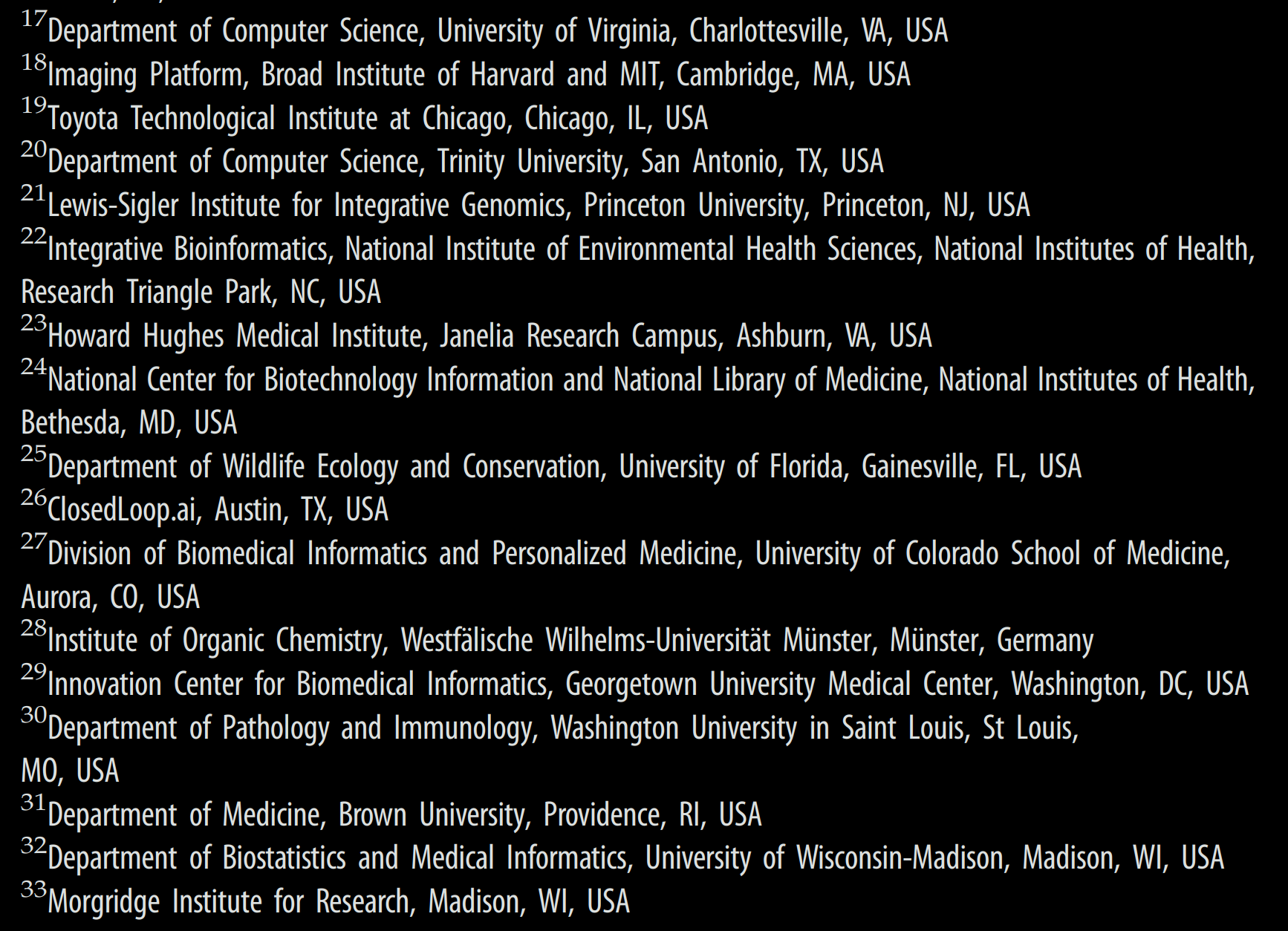
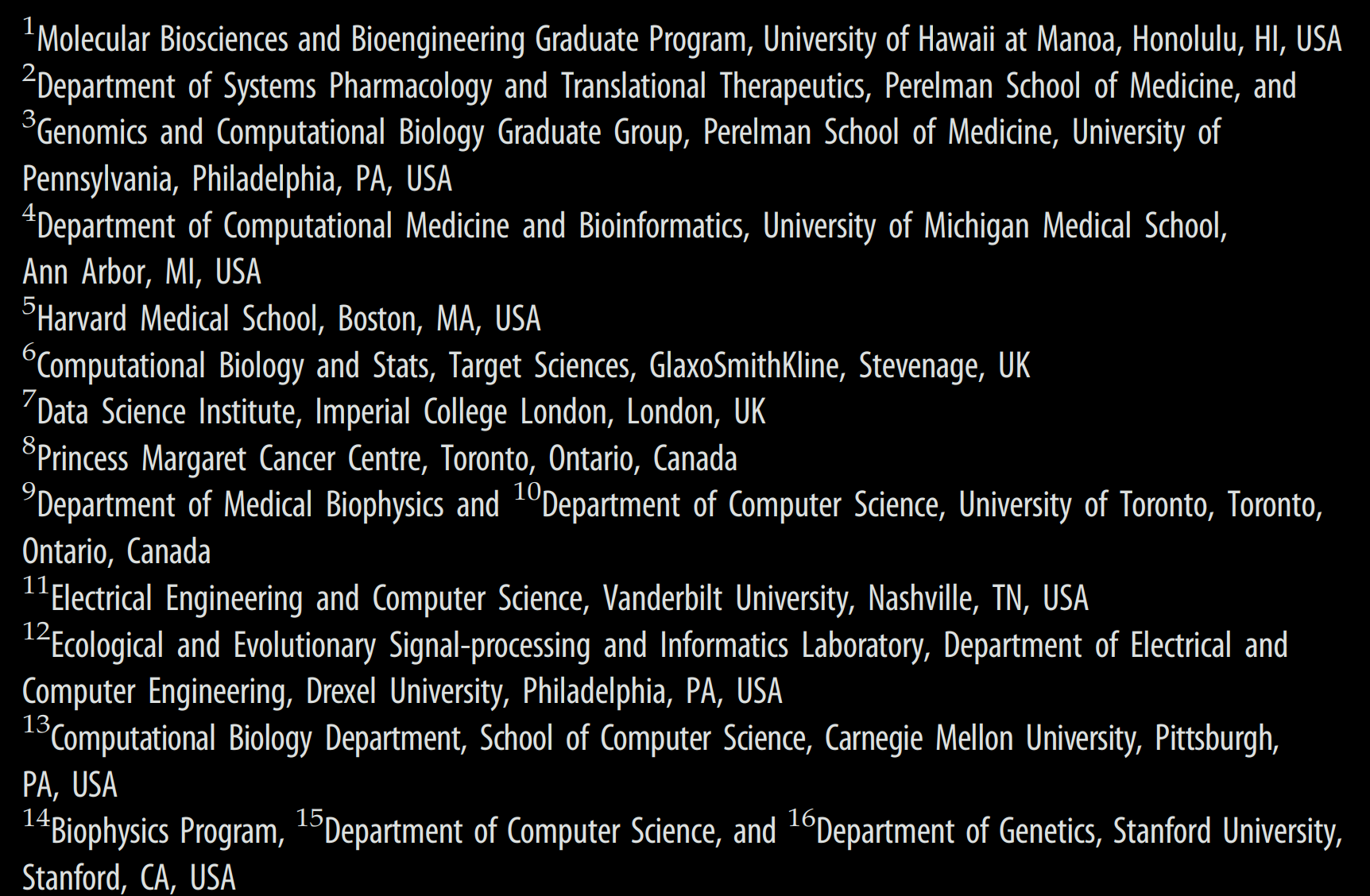
33 affiliations
https://github.com/greenelab/deep-review





deep review contribution history
the questions begin
where is the conversation?
~10% of bioRxiv preprints have comments.
Source: Inglis & Sever 2016. https://asapbio.org/biorxiv
Using PeerJ's comment feature to flag an error
hypothes.is journal integration

biOverlay
opportunities
- integrate conversations from multiple locations
- all studies should have a conversation venue
- incentivize public conversation
- all conversation enters the scientific record
Thanks!
@dhimmel
0000-0002-3012-7446
Slides
https://slides.com/dhimmel/frankfurt



